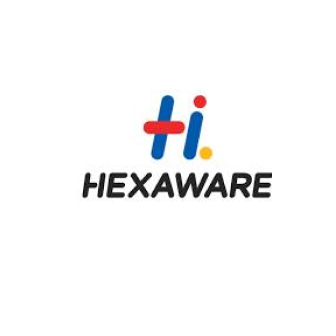
Hexaware Technologies, an IT services company backed by the Carlyle Group. The company offers various services regarding applications, cybersecurity, generative AI, sustainability, etc. Hexaware has won numerous awards with CEO R Srikrishna Recognized at the Asian Business Leaders Conclave by The Economic Times. They have also recently acquired Softcrylic, a Minneapolis based data consulting firm.
| Balance Sheet | FY23 | FY22 | FY21 | FY20 | FY19 |
|---|---|---|---|---|---|
| Equity Share Capital | 60.7 | 60.4 | 60.3 | 60.1 | 59.7 |
| Other Equity | 4,574.5 | 4,062.6 | 3,727.8 | 3,175.8 | 2,705.8 |
| Total Equity | 4,635.2 | 4,123.0 | 3,788.1 | 3,235.8 | 2,765.5 |
| Borrowings (secured) | 0 | 0 | 0 | 146.1 | 142.9 |
| Other NC Liabilities | 411.1 | 436.3 | 431.9 | 500.3 | 47.3 |
| Total NC liabilities | 411.1 | 436.3 | 431.9 | 646.4 | 190.3 |
| Borrowings (secured) | 0 | 82.7 | 0 | 43.8 | 0.1 |
| Other Current Liabilities | 2,156.5 | 1,869.6 | 1,453.9 | 1,211.6 | 1,212.9 |
| Total Current liabilities | 2,156.5 | 1,952.3 | 1,453.9 | 1,255.5 | 1,213.0 |
| Total Equity & Liabilities | 7,202.8 | 6,511.6 | 5,673.9 | 5,137.7 | 4,168.7 |
| Fixed Assets (incl. WIP) | 2,508.7 | 2,593.8 | 2,403.3 | 2,488.1 | 2,123.9 |
| Other Non Current Assets | 477.5 | 438.2 | 322.8 | 336.3 | 319.7 |
| Total NC Assets | 2,986.2 | 3,032.0 | 2,726.1 | 2,824.3 | 2,443.5 |
| Trade Receivables | 1,386.3 | 1,384.6 | 1,019.3 | 814.0 | 979.6 |
| Cash & cash equivalents | 1,773.4 | 1,291.6 | 1,178.7 | 1,011.4 | 231.6 |
| Other Current assets | 1,056.9 | 803.4 | 749.7 | 487.9 | 514.0 |
| Total Current Assets | 4,216.6 | 3,479.6 | 2,947.8 | 2,313.4 | 1,725.2 |
| Total Assets | 7,202.8 | 6,511.6 | 5,673.9 | 5,137.7 | 4,168.7 |
| Profit & Loss | FY23 | FY22 | FY21 | FY20 | FY19 |
|---|---|---|---|---|---|
| Revenue from operations | 10,380.3 | 9,199.6 | 7,177.7 | 6,262.1 | 5,582.5 |
| Growth % | 12.83% | 28.17% | 14.62% | 12.17% | 0 |
| Operating Expense | 8,799.2 | 7,977.9 | 6,044.7 | 5,215.2 | 4,704.3 |
| Growth % | 10.29% | 31.98% | 15.11% | 11.63% | 0 |
| Operating Profit | 1,581.1 | 1,221.7 | 1,132.9 | 1,046.8 | 878.2 |
| Operating Profit Margin % | 15.23% | 13.28% | 15.78% | 16.14% | 15.73% |
| Other Income | 8.8 | 179.2 | 66.8 | 35.2 | 11.8 |
| Finance costs | 37.8 | 33.5 | 34.4 | 49.2 | 7.4 |
| Depreciation and amortization expense | 283.6 | 244.4 | 224.2 | 232.4 | 103.4 |
| Profit before Tax | 1268.5 | 1123.0 | 941.2 | 800.4 | 779.3 |
| Tax expense | 270.9 | 238.8 | 192.4 | 179.0 | 137.9 |
| Tax % | 21.36% | 21.26% | 21.78% | 24.28% | 17.76% |
| Profit after Tax | 997.6 | 884.2 | 748.8 | 621.5 | 641.3 |
| Growth % | 12.83% | 27.96% | 23.82% | -12.59% | 0 |
| PAT% | 9.61% | 9.61% | 10.43% | 9.92% | 11.49% |
| EPS | 16.4 | 14.55 | 12.3 | 10.25 | 10.6 |
| Color | Shareholder | Holding |
|---|---|---|
| CA Magnum Holdings (Parent Company of Hexaware Technologies Limited) | 95.54% | |
| Others | 4.46% |